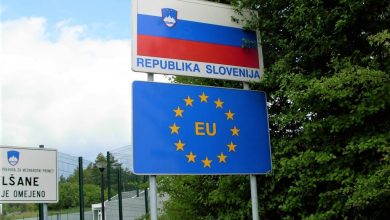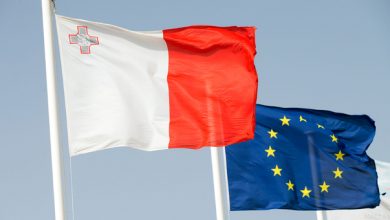Who is Who in Sánchez’s New Coalition Government?
Unpacking the first coalition government since Franco

For the first time since the ill-fated Second Republic (1931-36), members of several political parties will have a seat at the Council of Ministers. The coalition deal is preceded by four general elections in four years and the successful vote of no-confidence that brought the socialist Pedro Sánchez (S&D) into power in June 2018.
Why a coalition now?
Since the 1978 Constitution was adopted, the Spanish government of the day has normally enjoyed a majority in the Congress of Deputies, the Spanish lower house. This has taken the form of a one-party majority or of a confidence-and-supply deal with minor parties that supported the government’s agenda.
The first coalition deal came only in January 2016. It was sealed between Pedro Sánchez, then leader of the opposition, and centrist Albert Rivera (C’s, RE), but it was voted down 131-219 in Congress. As no government could be formed at that time, a general election was triggered in June, and conservative Mariano Rajoy (PP, EPP) remained in power with the support of C’s and PSOE’s controversial abstention amid a severe internal crisis.
In 2018, Spanish politics would be shaken by the no-confidence vote to replace Rajoy with Sánchez, as parties on PSOE’s left, as well as nationalists, put their differences apart to oust the conservative. The leftist Unidas Podemos (GUE/NGL) and its leader, Pablo Iglesias, who had voted against Sánchez only two years before, supported the PSOE leader without any ministerial demand.
Back to the polls
Pedro Sánchez’s ministers either were PSOE members or independents with great prestige such as Pedro Duque, the first Spanish astronaut, who became Minister for Universities and Science. Be it as it may, the government lacked support in the legislature to pass the budget law as some of the parties that supported Sánchez in June 2018 rejected the spending plan on account of regional demands such as an independence referendum for Catalonia. This triggered the April 2019 general election.
That election returned a hung parliament with PSOE and Unidas Podemos (hereafter, UP) close to a majority. Coalition talks stalled just hours before the parliamentary vote, with the later abstaining. The main causes of disagreement were Pablo Iglesias’s role in government as well as the cabinet departments to be given to UP members. Their failure to reach a deal, together with the lack of any viable alternative, triggered the November general election.
In the wake of the vote, Pedro Sánchez and Pablo Iglesias appeared on TV to lay out the guiding principles of the coalition deal to be reached, putting their differences aside. When enough parties either announced their support for the deal or their intention to abstain in the vote, the motion was put before the lower house, and now Spain has a new government.
The new government’s structure
For the first time in democratic history, Spain has four deputy Prime Ministers, one of which is UP leader Pablo Iglesias. Their role is not only to highlight key policy areas but also to coordinate the government’s agenda in departments related to theirs.

Pedro Sánchez is the Head of Government. He was first elected PSOE leader in 2014 while in opposition and resigned as his party decided to abstain in order to facilitate Rajoy’s confirmation in 2016, to win back party members’ support in the following primaries. He has long been a proponent of federalism for Spain and laicity for Spanish education. Both his first and his brand-new cabinet are markedly pro-European, leaning towards the centre in economic policy, and socially progressive. Before holding high public office, he obtained a PhD in Economics and worked as an associate lecturer at Universidad Camilo José Cela.

Carmen Calvo (PSOE) remains Sánchez’s first deputy and serves now as Minister for Relations with the Cortes (Spanish Parliament) and Democratic Memory. She worked in socialist Zapatero’s cabinet as Minister of Culture and retired from public life to return to her lectures in Constitutional Law in 2007. She has effectively worked as Sánchez’s right-hand in all key negotiations, including this coalition deal. As many Spaniards who were killed by firing squad in the Civil War remain in unknown locations, she has pledged to offer their remains a dignified burial. Another of her pledges is to audit properties illicitly taken by the Franco regime in order to return them to their legitimate owners.

Pablo Iglesias (UP) is the junior partner’s leader in this coalition. He is second deputy Prime Minister and Minister for Social Rights and Agenda 2030. He founded the left-wing Podemos in 2014, when he was a junior lecturer in Political Science at Universidad Complutense de Madrid. He then won 5 MEPs in the European Parliament election with a radical left manifesto. He has emphasised the right to affordable housing and better labour conditions, as well as better redistribution of wealth. One of his party’s main shared goals with PSOE is the repeal of the Law for the Protection of Public Security, which restricted the right to demonstrate and to oppose police action by giving the police the power to impose fines without judicial oversight. Even if Iglesias did campaign in the 2016 referendum for the UK to remain in the EU, he defends the strong need for reform in the EU.

Nadia Calviño (independent, proposed by PSOE) is elevated to third deputy Prime Minister. She retains the Economy portfolio and assumes Digital Transformation responsibilities. She graduated in economics and law to work as a civil servant. Her career took her to become the Director-General of the Spanish Competition Commission. She went on to become deputy Director-General for Competition in the Prodi Commission, single market (Barroso Commission), and Director-General for the Budget in the Juncker Commission. She is not only highly respected in Brussels, but also a guarantee that Spanish economic policy will follow EU guidelines.
 Teresa Ribera (PSOE) is the fourth deputy in the coalition. She remains the Minister for the Ecologic Transition and takes on demographic challenge duties. This green portfolio aims to curb the effects of pollution on the climate and to promote renewable and clean energy in Spain and abroad. One of the issues that appeared for the first time in this general election is the lack of public services and infrastructure in rural areas of Spain, which is pushing people in the tens of thousands to move to cities. She worked as a civil servant in the Environment Ministry under the PP administration in 2000. She assumed political office as State Secretary for Climate Change during Zapatero’s premiership and chaired the Institute for Sustainable Development in Paris (2014-18) before becoming a minister in Sánchez’s first cabinet.
Teresa Ribera (PSOE) is the fourth deputy in the coalition. She remains the Minister for the Ecologic Transition and takes on demographic challenge duties. This green portfolio aims to curb the effects of pollution on the climate and to promote renewable and clean energy in Spain and abroad. One of the issues that appeared for the first time in this general election is the lack of public services and infrastructure in rural areas of Spain, which is pushing people in the tens of thousands to move to cities. She worked as a civil servant in the Environment Ministry under the PP administration in 2000. She assumed political office as State Secretary for Climate Change during Zapatero’s premiership and chaired the Institute for Sustainable Development in Paris (2014-18) before becoming a minister in Sánchez’s first cabinet.
Who is in charge of Europe?
Arancha González Laya (independent, proposed by PSOE) replaces Josep Borrell as Minister for Foreign Affairs, European Union, and Cooperation. This post was vacated by her predecessor’s nomination as High Representative of the Union for Foreign Affairs and Security Policy. One of her priorities will be to continue Borrell’s work to restore Spain’s reputation overseas, tarnished as it was by the Catalan question. She will also be tasked with shaping the future relationship of the UK with the EU in the aftermath of Brexit and with the challenges posed by migrations.
She has worked as Executive Director of the International Trade Centre, a joint organism of the World Trade Organisation and the United Nations, and as Pascal Lamy’s Chief of Staff when he was WTO’s Secretary-General. She also enjoyed a career as a civil servant before holding public office. González Laya is expected to keep practising economic diplomacy, as she will be tasked with promoting Spanish companies’ economic interests abroad, especially for those in the process of internationalisation.

Spokesperson and High Offices
María Jesús Montero (PSOE), Minister of Finance, replaces Isabel Celáa as Government Spokesperson. As Finance ministers tend to be discrete while spokespersons are exactly the opposite, it is unprecedented in Spain for these two offices to be held by the same person. She drafted and negotiated with the new coalition partners Unidas Podemos the failed 2019 budget, labelled as the most social budget in Spanish history. Her prior expertise in politics consists of several regional ministries she held in Andalusia: Health and Social Welfare (2004-13), and Finance and Public Administration (2013-18).
- Juan Carlos Campo (PSOE), Minister of Justice, is new to the cabinet. He worked as a judge in the Cádiz Provincial Court before becoming Law Professor and working for the Andalusian government. He served as Secretary of State for Justice between 2009 and 2011.
- Margarita Robles (independent, proposed by PSOE) remains Minister of Defence. She enjoyed a successful career in the judiciary, becoming a Magistrate of the Supreme Court in 2004. Her term expired in 2016, and then she jumped into politics with Pedro Sánchez. Despite announcing her intention to cancel armament contracts with Saudi Arabia on human rights concerns, these would eventually go on to protect Spanish jobs. With the impending creation of an EU army, her post gains European relevance.
- Fernando Grande-Marlaska (independent, proposed by PSOE) keeps the Interior portfolio. He also came to prominence as a justice, presiding the Criminal Chamber of the Audiencia Nacional between 2013 and 2018, when Sánchez became PM. His nomination was met with surprise, as he had been conjectured to lean towards conservatism in view of his particularly harsh rulings against the terrorist group ETA. He is openly gay and married his husband at the earliest opportunity following the passage of the same-sex marriage act in 2005, being involved in the fight against LGBT-phobia.
- Irene Montero (UP), new Minister of Equality, will be tasked with designing public policies aimed to tackle the different inequalities faced by Spaniards for reasons of gender, sexual orientation, origin, and other reasons. She graduated in Psychology and has a background as an activist following the housing market bubble’s burst.
Other Portfolios to Keep an Eye On
- Yolanda Díaz (UP) becomes Minister of Labour. For the first time, Labour and Social Security are not under the same minister’s direction. She worked with UP leader Pablo Iglesias as early as 2012 and has been a member of the Communist Party of Spain (a member of United Left, part of UP) since her youth. As Rajoy’s Labour Law (2012) was heavily contested by UP and PSOE, it is expected that a new one is in the makings. She is expected to tilt the balance of collective negotiation in favour of employees and to raise working standards.
- Pedro Duque (independent, proposed by PSOE), Minister of Science and Innovation. His cross-party reputation cemented Sánchez’s first cabinet’s public image, as he is the first Spanish astronaut. During his tenure, he has already managed to simplify access to funds by researchers and has kept in touch with the scientific community. His office has sought the fulfilment of the objectives of Horizon 2020, the EU’s largest scientific research programme to this day. It is soon to be replaced by the more ambitious Horizon Europa.
- Manuel Castells (independent, proposed by UP) is to become Minister of Universities. He is a world expert on information society and a long-time proponent of new technologies. His previous publications hint that he advocates for technological transformations to be involved in education, as is the case of Finland.
- Reyes Maroto (PSOE), Minister of Industry, Trade, and Tourism and Luis Planas (PSOE), Minister of Agriculture, Fisheries, and Food, retain their portfolios. There is uncertainty surrounding the future of the Common Agriculture Policy and the Common Fisheries Policy, in which the later will be involved. The former’s office will play an active role in shaping future EU trade deals with third countries, including post-Brexit Britain.
A Recap
There are as many as seven independents out of twenty-two ministers. A vast number of ministers have held high positions in Spanish or European civil service before ever holding public office, and many of them are renowned experts in their field, including university lecturers. This combination should allay fears that Pedro Sánchez might be forming a radical cabinet by including members of the Communist Party in the Council of Ministers. On the contrary, technocrats hold key positions such as Economy and Social Security, with two ministers having been picked for prominent roles by conservative ministers. It is expected that their first decision will be a moderate increase in the minimum wage, currently set at €900.
However, the hazards ahead are diverse. Parliamentary votes are expected to be tight as C’s (Renew Europe), PP (EPP), and Vox (ECR) have announced their hard opposition to the coalition. Sánchez will not only need to keep his coalition together but also win the support of smaller parties, including the Catalan pro-independence left-wing ERC and the Basque nationalist PNV. The first stepping stone in the coalition’s agenda is the passage of the budget law, to which ERC have announced their intention to vote against unless an independence referendum is held in Catalonia. However, the constitutional reform that would make that referendum possible can easily be blocked by the opposition parties vehemently opposing such a vote.





